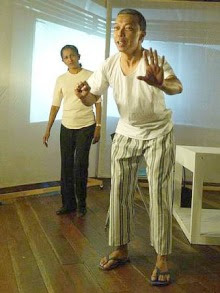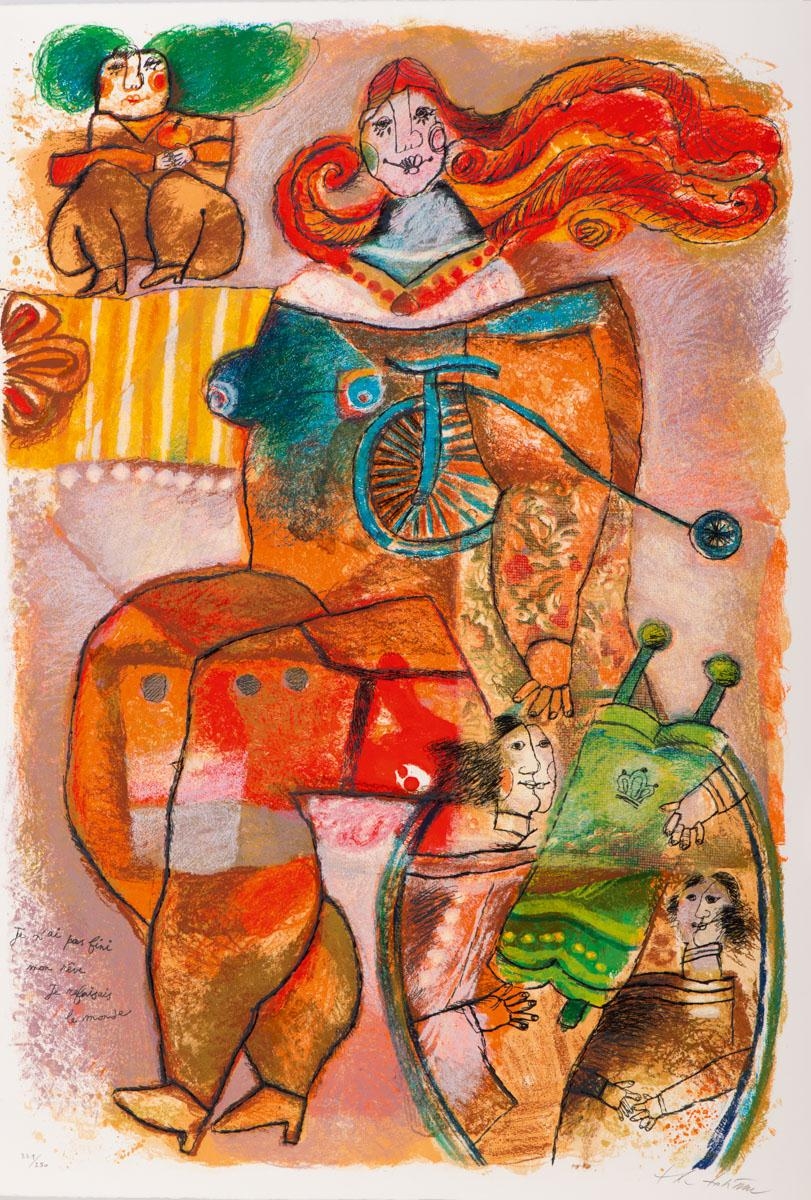More than meets the eye
In this play set 13 years ago in Sabah, double-edged one-liners helped to lift it into the contemporary realm.
THE TARAP MAN
Dec 5-9
The Annexe Gallery,
Central Market, KL
Review by SARAS MANICKAM
THEY said The Tarap Man is a journalistic thriller. They lied. The Tarap Man is more than that. It is an unflinching look at a system that failed and continues to fail the individual.
It is about socio-political reality failing common humanity; about the fourth estate (Senior journalist to young award-winning one: “Once upon a time, there was a Fourth Estate.” “Where?”) failing to maintain journalistic integrity, preferring to play ball instead. It is about metaphors of life, surviving the system and rising above it. The play may have been set 13 years ago but given recent events, the threads are wholly contemporary.
The Tarap Man is set in Sabah. It is about a boy incarcerated for the murder of his mother in 1952 and presumably still in prison with the system having forgotten about him. More than 50 years later, a journalist struggles to unravel the truth about him. Against the backdrop loom the state elections of 1994, a critical testing time for the system, individual and the public at large.

When Aashi (Anne James) finally meets the tarap man (Vernon Adrian Emuang), she is swept into his secret, cryptic world.
The play could have descended into ponderous pathos; instead, it is largely accessible and absorbing, thanks to gifted acting, direction and production. Double-edged one-liners helped to lift the play into the contemporary realm. Goes one line: “What makes you think that those who fight for democracy are democratic themselves?” And when Cornelia (Mia Palencia) is chuffed about her award-winning piece on endangered corals, she meets with “So you think that if they know, they will care?” Perhaps the most thought provoking line belongs to Leong Kin (Thor Kah Hoong) when he tells his editor: “Do not mistake my silence for my compliance.”
Rising above being merely entertained, the audience is constantly forced to assess meaning within meaning and so an interactive process is created. For this, if not anything else, go watch this wholly original local play by Ann Lee. The play is in English but incorporates naturally into its flow, other languages such as Hakka, Telugu, Kadazan and Malay.
Aashi (Anne James) is a Semenanjung journalist in Sabah, in cold storage, for writing one too many critical pieces against the establishment. She is advised by friend and colleague, Leong Kin, to lie low. Aashi is incredulous. “Lie low? I am in Sabah. How low do you want me to go?”

A different kind of mentoring. Leong Kin (Thor Kar Hoong) wants more from Cornelia (Mia Palencia) than what she is willing to give.
Their critical scene together, pivotal to the play, is perhaps the weakest scene, marred by a script that suddenly becomes a mishmash of the obscure, the incomprehensible and the simply too confusing. A tighter reined script here, that allows the leaps and incoherence without sacrificing understanding, would have been good.
We get the gist though: the tarap man is no mad creature. He is governed by his own unconventional views and methods. Perhaps saner than many, he is cryptic, mysterious, complex and he cunningly keeps his secrets.
Single-minded in pushing his agenda, Aashi refuses to acknowledge or cover the larger-than-life political crisis in Sabah then and so is sacked again.
There are many threads in the play and not all of them quite work. We don’t know what is really in the letters. Did the tarap man actually kill his mother? Is he mad pretending to be sane pretending to be mad? There are no neat tie-ups but it doesn’t quite matter.
Director Zahim Albakri is brilliant – though I can’t understand the necessity for the table tennis scene. Vernon Adrian Emuang, Anne James and Thor Kah Hoong are outstanding and the rest of the cast, very impressive.
At intermission, the audience finds itself ushered out by a cold-faced prison guard: “Pigi! Pigi! Pigi! Cepat!” Her words are chilling. I would use the words with more warmth and say, “Pigi! Pigi! Pigi cepat and watch the play.”











